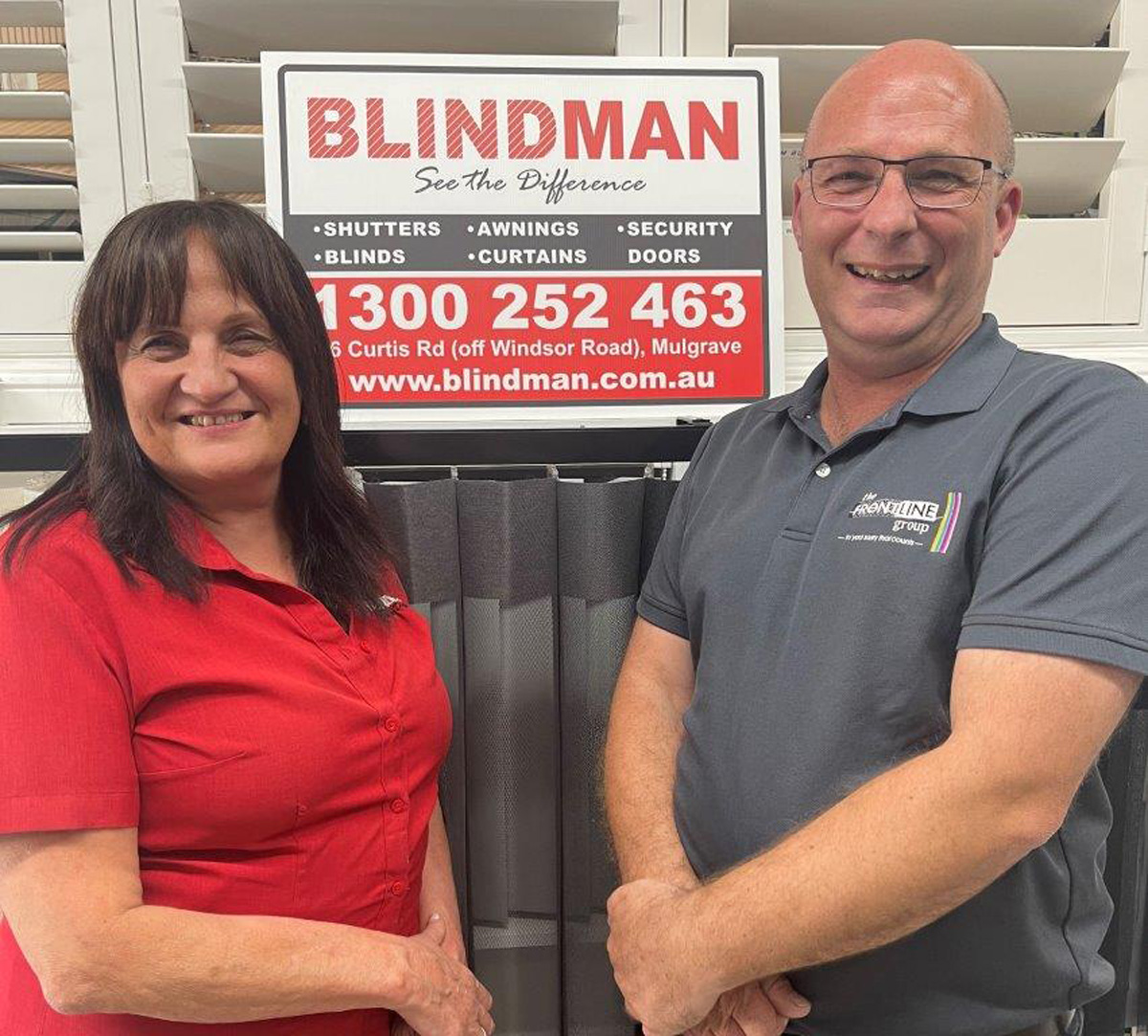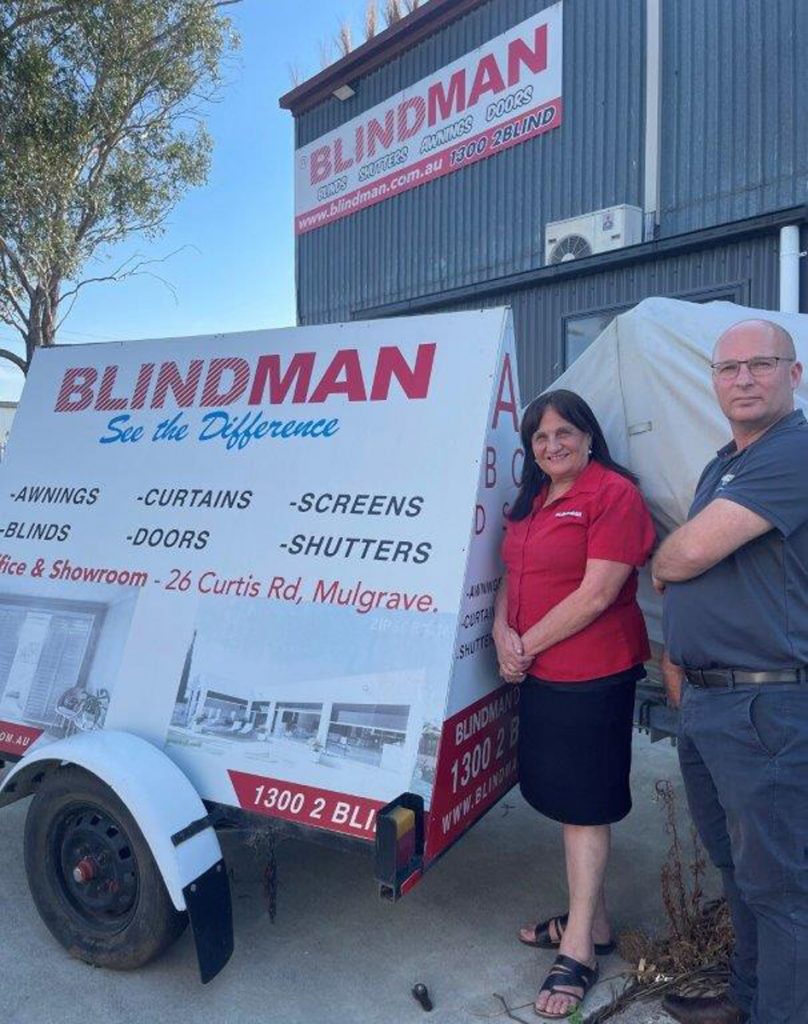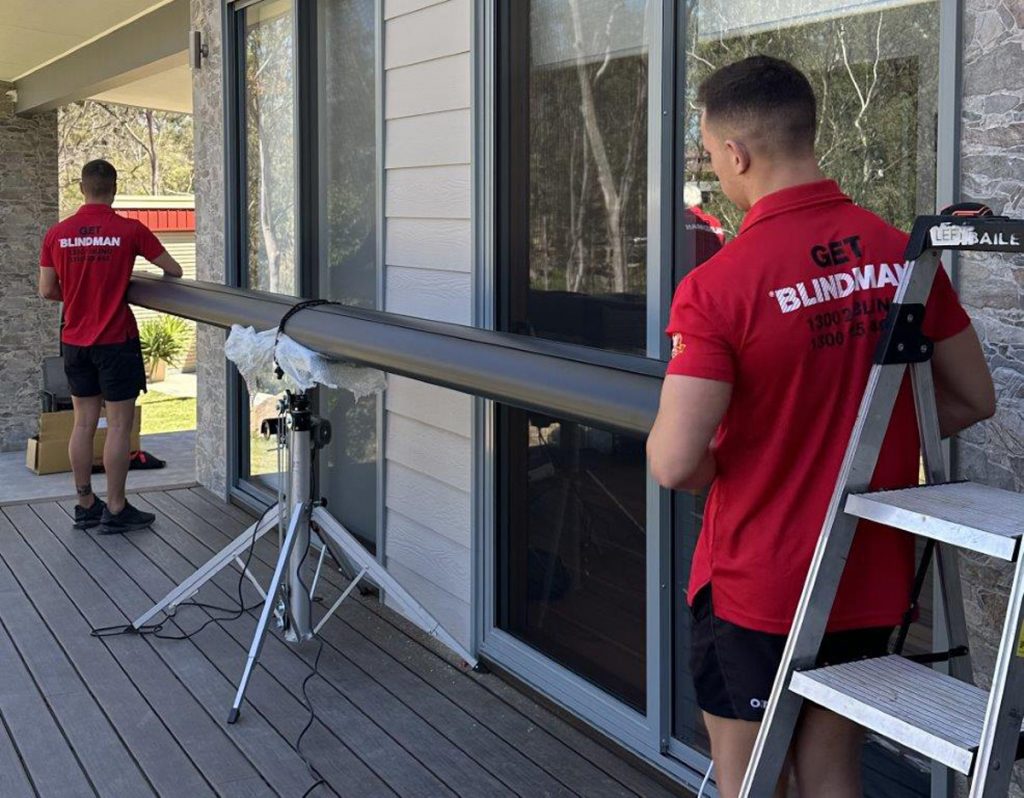

In recent years, businesses worldwide faced a plethora of challenges, from natural disasters to pandemics. While some buckled under pressure, others like The Blindman, a well known window furnishings retailer in the Hawkesbury region in NSW, showcased resilience, adaptability, and a commitment to their team and community. WFA reports.
Blindman is a small family business established 33 years ago, starting from a workshop at home and subsequently moving into its current premises at Mulgrave/Windsor, NSW in 1996.
Marian and Peter Wilcox started Blindman whilst their children were young and quickly grew their business by being innovative in supplying new home packages of blinds, screens and security doors to many project home builders in Sydney, offering them a turnkey solution to make their homes more appealing to buyers.
WFA recently spoke with Marian Wilcox of Blindman to understand their journey through these tumultuous times.
“The bushfires several years ago were just so devastating,” began Wilcox, recalling the uncomfortable conditions their team worked under at Wiseman’s Ferry.
Despite the external turmoil, their focus was on supporting the team with resources and leveraging the training they had undergone. While bushfires were a significant hurdle, the floods that followed affected them even more with transport disruptions, stock delays, and staff being stranded. Yet, in this trying time, they stood by their community, offering significant discounts to those affected.
The challenges didn’t end there. The emergence of Covid19 brought with it a new set of obstacles. Long supply chain delays and a heavy dependence on online connections became the norm. Through all these, Wilcox mentioned an underlying thread that kept them going: their training strategy.

“There were so many things that were beyond our control,” Wilcox mentioned when asked about the decision to persist amidst adversity.
The key motivation behind their perseverance was their commitment to staff training, a lesson they learned during the Global Financial Crisis.
“We also knew that if we didn’t plan for a future then the future that would likely eventuate would not be our preference,” she added.
The training program emphasised various aspects, from product range to customer preference and service, and played a pivotal role in navigating the ever-changing landscape.
Wilcox emphasised the importance of the training program, especially in a time when many new employees lacked industry experience. The trainers, industry experts like Richard and Cliff, were instrumental in fostering a hands-on learning approach, balancing theoretical and practical aspects.
As a result of this comprehensive training, two young men from the team recently completed their qualifications and traineeships.
“The most obvious development and gain were in customer service,” said Wilcox. From technical knowledge to understanding customer needs, the program left no stone unturned.
One might wonder how such training programs impact business efficiency. Wilcox candidly acknowledged that, “Change and its positive impact was gradual rather than rapid… but then it was sustained.”
The program’s specialised workshops, such as training on product knowledge, have paid dividends.
Interestingly, the training program’s success transcended mere skill development. Employees realised that learning was a continuous process. Wilcox noticed a marked improvement in employee morale and engagement. Trainees became problem solvers with a higher degree of confidence and capability.
To businesses struggling in these challenging times, Wilcox offers a simple yet powerful piece of advice.
“Recognise the value and potential of your workforce by training them well and developing their confidence.”
She underscores the need for continuous learning, especially in an industry as dynamic as theirs.

“Our industry deserves the prestige of being recognised as a trade, which hasn’t been the case in the past. And if we are to be recognised then we need to realise and understand that training requires adequate time to learn.”
“Also, our industry, while traditional in one sense, is also quite innovative with new products and features such as for example motorisation and automation that are introduced regularly. Not only does this need to be incorporated into our training programs but we also need to commit to updating our people as new innovations and approaches are introduced.”
“Based upon our experience, I thoroughly recommend the training program. We as a business need a skilled person to be with people as they are learning, so training your people has a double benefit and not merely for the individual’s learning but that of the team they work with,” Wilcox added.
Peter Jasonides, Managing Director of the Registered Training Organisation (RTO) ITHEA tells WFA that industry partner in training The Frontline Group approached ITHEA in 2018 about training for the window furnishing industry.
“We were delighted and quickly took up the opportunity as from our earliest days as a training institute we had established ourselves on the principle that training for business is best done in the business with an emphasis on relevance, consistency, adequacy, validity, reliability and flexibility and fairness.”
“When we became aware of the challenges faced by Blindman in Windsor NSW we decided to offer the training by scholarship at no cost, as it seemed to us that this business and its people had experienced more than their share of hardship.”
“I and all at our Institute of Tertiary and Higher Education of Australia (ITHEA) are delighted at the completion of the Certificate III program by Blindman’s two trainees and wish them and the company every future success,” Jasonides said.